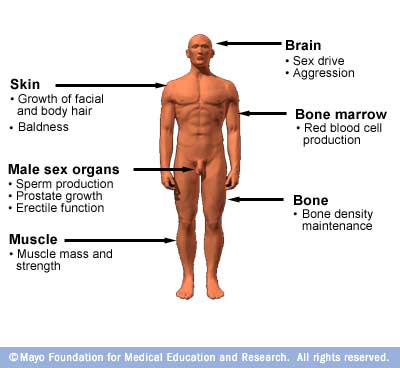
Some of the side effects associated with hormone replacement therapy (HRT) include :
- nausea
- vaginal bleeding
- abdominal bloating
- exacerbation of migraine headaches
- hypertension
There is an increased risk of gallbladder diseases, breast cancer, heart attack, stroke and blood clot formation. the risks are higher in patients with pre-existing cardiac conditions or hyperlipidemia (elevated blood lipid levels). High risk patients can however use transdermal patches or skin creams used for vaginal dryness if prescribed by a medical doctor.
Estrogen on its own can increase the risk of endometrial cancer (cancer of the uterine lining) in women with an intact uterus and addition of progesterone lowers this risk. The cyclical administration of HRT can lead to cyclic bleeding which is not acceptable to some women.
HRT is contraindicated in women:
- who think they are pregnant
- who have had cancer
- who have problem concerning vaginal bleeding
- who have impaired lipid levels
- who have had a heart disease.
There are broadly two types of - conventional and natural HRT.
Conventional HRT
Conventional HRT preparation, also referred to as synthetic HRT, are available with prescription and are under the regulated by the FDA. These are available as a :
- single drug, containing either estrogen or progesterone
- combination of the estrogen and progesterone in different strengths
Endogenously, estrogen can be estradiol (main form), estrone and estriol. In oral formulations estrogen may be present as estradiol or conjugated estrogens or ethinyl estradiol (synthetic) or salts of estrone.
One of the oldest drugs like Premarin contains ‘conjugated equine estrogen’ which are a mixture of estrone, equilin (estrogen of pregnant mare) and other estrogens. Newer preparations like Estrace, Estinyl, Activella and Ortho-Prefest contain estradiol which has been derived from the plants.
Conventional HRT can be available as:
HRT should be taken for relieving the unbearable symptoms of the menopause. however, every menopausal woman does not require HRT as the symptoms decrease with time and may not respond to HRT in some cases.
Natural HRT
Natural HRT (NHRT) or bio-identical HRT (BHRT) includes the hormone preparations derived from plant extracts and then chemically modified to be structurally indistinguishable from the endogenous female hormones. These are derived from wild yams and soybeans. Long term data about its efficacy and safety is lacking.
Natural HRT is considered as an alternative to the conventional therapy. Like the conventional HRT, natural HRT is also given continuously or in a cyclical manner. Oral capsules, tablets, lozenges, injections and vaginal suppositories and skin creams, patches of natural HRT are available.
Alternatives treatment includes using some herbs which may help to reduce the intensity of menopause symptoms of the menopause. Black cohosh is among the more widely used herbs in herbal medicine but there is insufficient data available to support its use.
Further Reading :